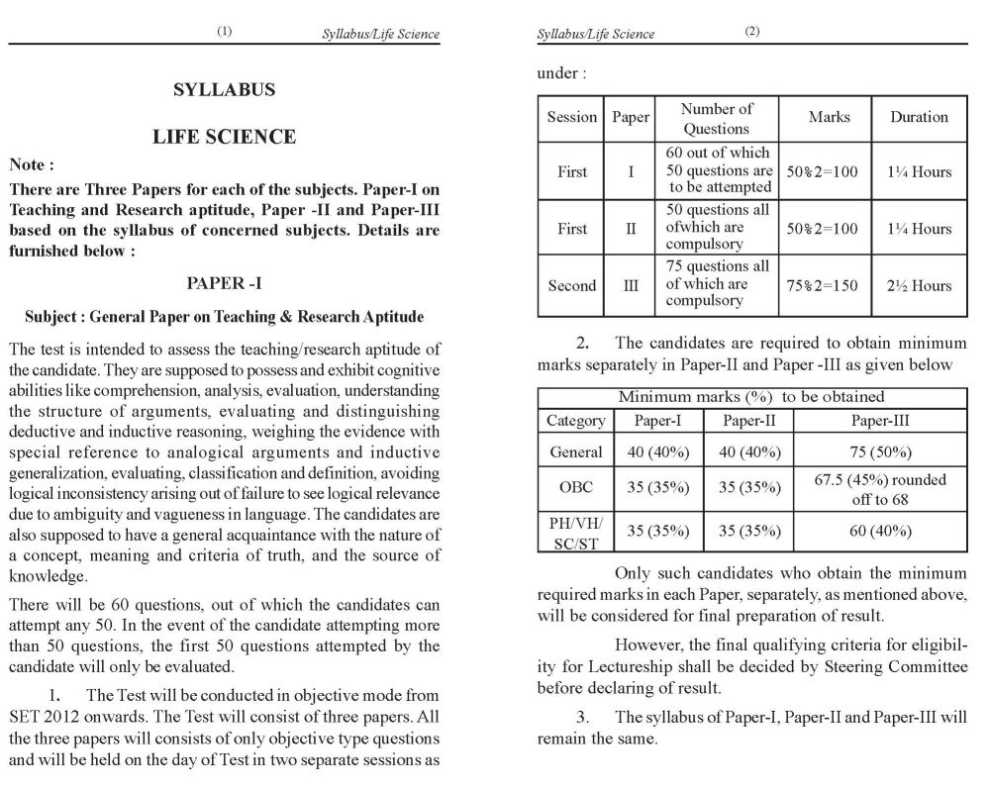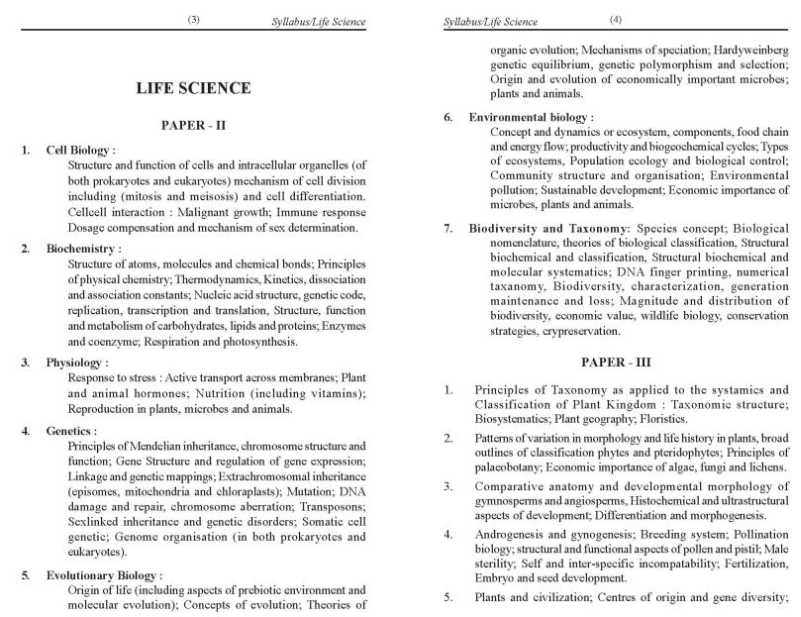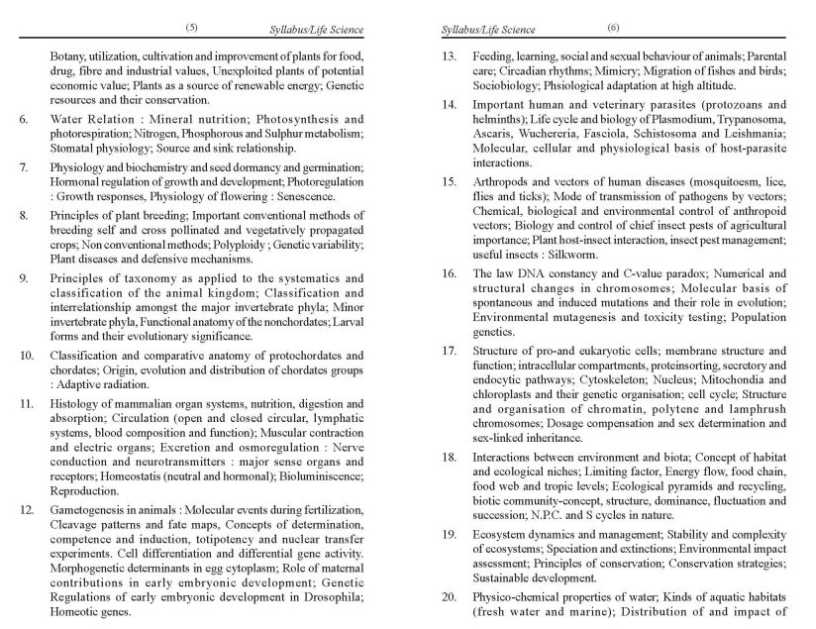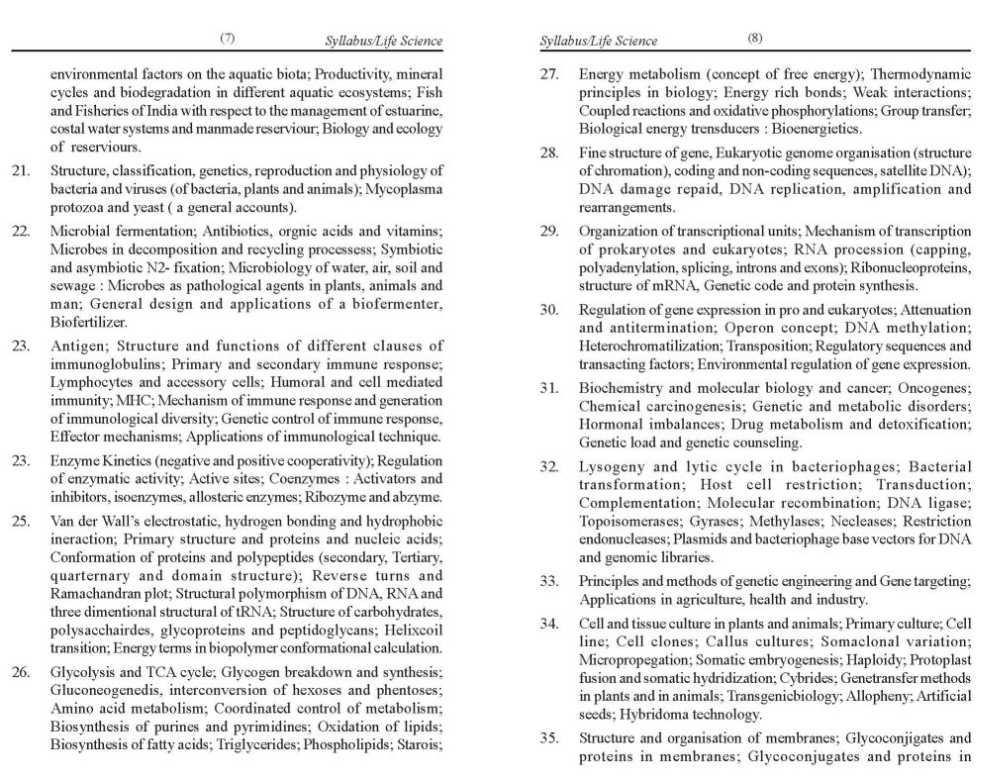|
#1
1st August 2014, 12:14 PM
| |||
| |||
| SLET Life Science Exam syllabus
Please provide me syllabus for Life science subject for state level eligibility test in a PDF file format ? Here I am giving you syllabus for Life science subject for state level eligibility test. LIFE SCIENCE PAPER - II 1. Cell Biology : Structure and function of cells and intracellular organelles (of both prokaryotes and eukaryotes) mechanism of cell division including (mitosis and meisosis) and cell differentiation. Cellcell interaction : Malignant growth; Immune response Dosage compensation and mechanism of sex determination. 2. Biochemistry : Structure of atoms, molecules and chemical bonds; Principles of physical chemistry; Thermodynamics, Kinetics, dissociation and association constants; Nucleic acid structure, genetic code, replication, transcription and translation, Structure, function and metabolism of carbohydrates, lipids and proteins; Enzymes and coenzyme; Respiration and photosynthesis. 3. Physiology : Response to stress : Active transport across membranes; Plant and animal hormones; Nutrition (including vitamins); Reproduction in plants, microbes and animals. 4. Genetics : Principles of Mendelian inheritance, chromosome structure and function; Gene Structure and regulation of gene expression; Linkage and genetic mappings; Extrachromosomal inheritance (episomes, mitochondria and chloraplasts); Mutation; DNA damage and repair, chromosome aberration; Transposons; Sexlinked inheritance and genetic disorders; Somatic cell genetic; Genome organisation (in both prokaryotes and eukaryotes). 5. Evolutionary Biology : Origin of life (including aspects of prebiotic environment and molecular evolution); Concepts of evolution; Theories of organic evolution; Mechanisms of speciation; Hardyweinberg genetic equilibrium, genetic polymorphism and selection; Origin and evolution of economically important microbes; plants and animals. 6. Environmental biology : Concept and dynamics or ecosystem, components, food chain and energy flow; productivity and biogeochemical cycles; Types of ecosystems, Population ecology and biological control; Community structure and organisation; Environmental pollution; Sustainable development; Economic importance of microbes, plants and animals. 7. Biodiversity and Taxonomy: Species concept; Biological nomenclature, theories of biological classification, Structural biochemical and classification, Structural biochemical and molecular systematics; DNA finger printing, numerical taxanomy, Biodiversity, characterization, generation maintenance and loss; Magnitude and distribution of biodiversity, economic value, wildlife biology, conservation strategies, crypreservation. PAPER - III 1. Principles of Taxonomy as applied to the systamics and Classification of Plant Kingdom : Taxonomic structure; Biosystematics; Plant geography; Floristics. 2. Patterns of variation in morphology and life history in plants, broad outlines of classification phytes and pteridophytes; Principles of palaeobotany; Economic importance of algae, fungi and lichens. 3. Comparative anatomy and developmental morphology of gymnosperms and angiosperms, Histochemical and ultrastructural aspects of development; Differentiation and morphogenesis. 4. Androgenesis and gynogenesis; Breeding system; Pollination biology; structural and functional aspects of pollen and pistil; Male sterility; Self and inter-specific incompatability; Fertilization, Embryo and seed development. 5. Plants and civilization; Centres of origin and gene diversity; Botany, utilization, cultivation and improvement of plants for food, drug, fibre and industrial values, Unexploited plants of potential economic value; Plants as a source of renewable energy; Genetic resources and their conservation. 6. Water Relation : Mineral nutrition; Photosynthesis and photorespiration; Nitrogen, Phosphorous and Sulphur metabolism; Stomatal physiology; Source and sink relationship. 7. Physiology and biochemistry and seed dormancy and germination; Hormonal regulation of growth and development; Photoregulation : Growth responses, Physiology of flowering : Senescence. 8. Principles of plant breeding; Important conventional methods of breeding self and cross pollinated and vegetatively propagated crops; Non conventional methods; Polyploidy ; Genetic variability; Plant diseases and defensive mechanisms. 9. Principles of taxonomy as applied to the systematics and classification of the animal kingdom; Classification and interrelationship amongst the major invertebrate phyla; Minor invertebrate phyla, Functional anatomy of the nonchordates; Larval forms and their evolutionary significance. 10. Classification and comparative anatomy of protochordates and chordates; Origin, evolution and distribution of chordates groups : Adaptive radiation. 11. Histology of mammalian organ systems, nutrition, digestion and absorption; Circulation (open and closed circular, lymphatic systems, blood composition and function); Muscular contraction and electric organs; Excretion and osmoregulation : Nerve conduction and neurotransmitters : major sense organs and receptors; Homeostatis (neutral and hormonal); Bioluminiscence; Reproduction. SLET Life Science Exam syllabus      Last edited by sumit; 19th November 2019 at 10:08 AM. |
